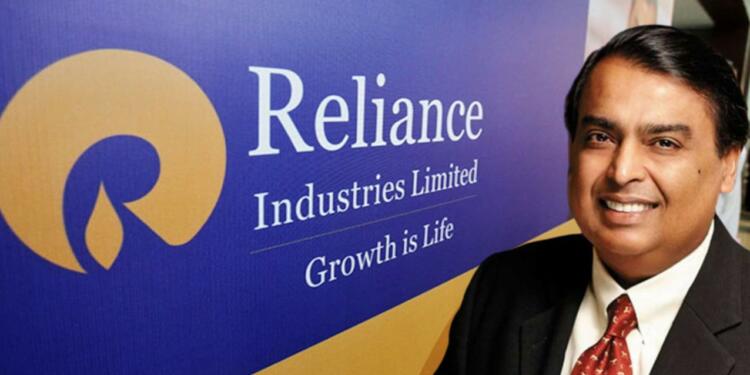Reliance Industries Ltd. (RIL) led by India’s richest man Mukesh Ambani has announced that it has entered into an agreement with Sanmina Corporation to create a joint venture for a world-class electronic manufacturing hub in India. According to a regulatory filing, Reliance Strategic Business Ventures Limited (RSBVL), a wholly-owned subsidiary of RIL will own a 50.1 per cent equity stake in the joint venture entity while Sanmina will own the remaining 49.9 per cent.
Reportedly, the joint venture will aim to manufacture high technology infrastructure hardware for growth markets and across industries such as communications networking (5G, cloud infrastructure, hyperscale data centres), medical and healthcare systems, industrial and cleantech, and defence and aerospace. Initially, all the manufacturing activity will take place at Sanmina’s 100-acre campus in Chennai.
The company remarked after putting pen to paper on the agreement, “The joint venture will create a state-of-the-art ‘Manufacturing Technology Centre of Excellence’ that will serve as an incubation centre to support the product development and hardware start-up ecosystem in India, as well as promote research and innovation of leading-edge technologies,”
Reliance is in an overdrive mode
The scale and ambition of the deal represent the drive of Mukesh Ambani and his company Reliance. Over the last couple of years, Reliance has been aggressively expanding its footprint over myriad sectors of the economy.
Whether it be e-commerce, robotics, Electric vehicles, DTH, communication, or clean energy – Reliance is everywhere. In the process, it is making India a giant on the global map.
Reliance retail and its success
Reliance Retail, the retail arm of RIL has witnessed exponential growth in revenues in the last few years. The company is growing through organic, and inorganic (acquisitions) means and bringing new efficiency and resilience to the country’s retail market.
In the last quarter, the company posted a 23% increase in net profit in the third quarter while revenue expanded 53% to 50,564 crore rupees.
Mukesh Ambani has made it clear that Reliance retail is looking for aggressive expansion and the company wants consumer business, which contributes only 20 per cent to the total revenue, to contribute as much as energy and refining businesses by 2025.
Developing technology to revolutionize the e-commerce space
Moreover, the company has invested in several startups in the last few months in order to utilize technology to expand business operations and make them more efficient.
As reported by TFI, looking to go toe-to-toe with Amazon in the battle of dominance in the e-commerce sector, RIL in January completed a major acquisition. Reportedly, Reliance bought a majority stake in an Indian robotics startup named Addverb Technologies Pvt, which uses robots to make e-commerce warehouses and energy production more efficient. The deal is estimated to be worth $132 million.
The cherry on top has been Amazon’s humiliation by India’s antitrust agency Competition Commission of India (CCI) after it tried to derail the Future Group-Reliance deal. Amazon’s deal with Future Group has been suspended as the US-based company had suppressed information while seeking regulatory approval.
Read More: Reliance’s masterplan to crush Amazon looks pretty solid
Renewable energy sector and Reliance’s involvement
Not only this, but Reliance is also making rapid strides in the renewable energy sector as well. In the last few months, Reliance Industries has acquired several big companies, made investments in multiple new energy startups, and stitched partnerships with numerous firms to make a big bang entry in the green energy market.
As reported by TFI, the largest acquisition is of REC Solar from ChemChina, for 771 million dollars. Reliance New Energy Solar Limited also purchased 40% shares of Sterling and Wilson Solar from Shapoorji Pallonji & Co. Pvt. Ltd (SPCPL) and Khurshed Yazdi Daruvala, for 2,845 crore rupees.
Hydrogen is the future: Reliance
Apart from solar, the other big green energy sector where Mukesh Ambani is focusing on is Hydrogen energy. RIL partnered with Denmark’s Stiesdal, towards its ‘1-1-1’ green-hydrogen goal. Stiesdal has developed an electrolysis technology that is cheaper than others, and this company will help RIL in its hydrogen-driven vehicles ambitions.
While Electric Vehicles charged by lithium-ion batteries are being touted as the future, Reliance is diversifying its options by not keeping all eggs in one basket. Like big automobile giants such as Toyota, Reliance is betting heavily on hydrogen-fuelled vehicles.
As reported by TFI, Reliance industries are all set to become one of the prominent sellers of Hydrogen fuels. They will do it by bringing down the cost of Hydrogen fuels. The company has decided to re-purpose a synthesis gas plant for the production of blue Hydrogen.
Read More: Prepare to bid your fossil fuel goodbye! India is leading the blue Hydrogen race!
Giving stiff competition to Meta
Apart from the startups, established tech players like Reliance Jio are also making huge bets on augmented reality, mixed reality, and overall blockchain technology. Reliance Jio made its entry into the mixed reality market with the launch of Jio Glass.
With Facebook rechristened as Meta looking to dominate the space of augmented reality, virtual reality, and mixed reality, Reliance has also sharpened its focus to hive a stiff competition to Mark Zuckerberg and his company.
In a related attempt, Reliance invested $15 million in a Silicon Valley-based deep tech startup named Two Platforms Inc. (TWO). It is an Artificial Reality company that emphasizes creating interactive and immersion AI experiences. The Artificial Reality platform enables real-time AI voice and video calls, digital humans, immersive spaces, and life-like gaming.
Reliance is on a roll and if Mukesh Ambani continues to expand like this, he may just be the biggest visionaries of his generation, who not only dared to envision the unthinkable but also achieved the most of it.



























